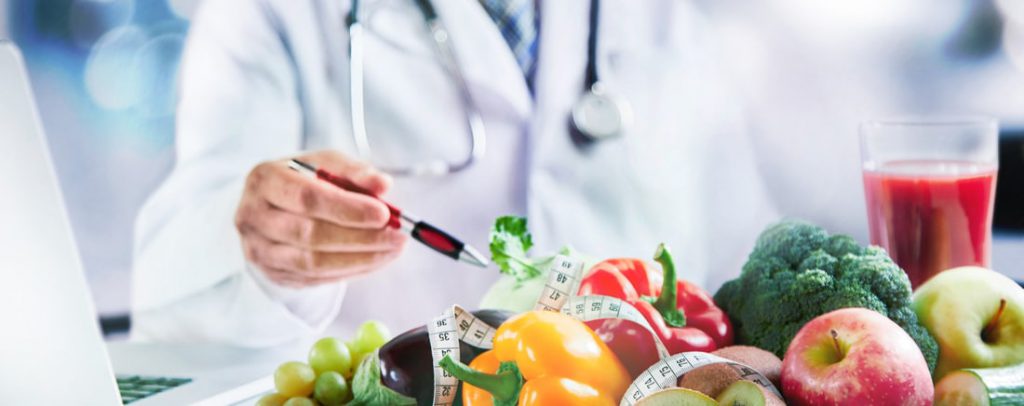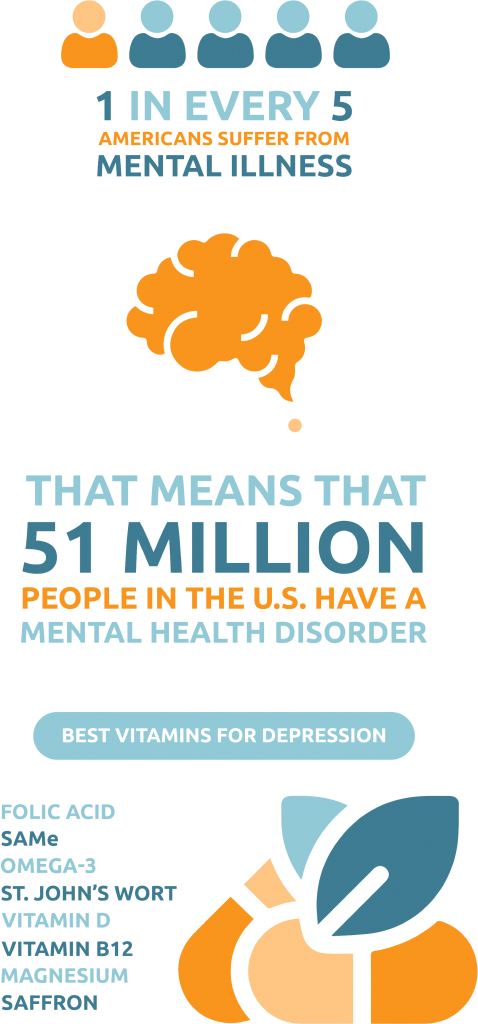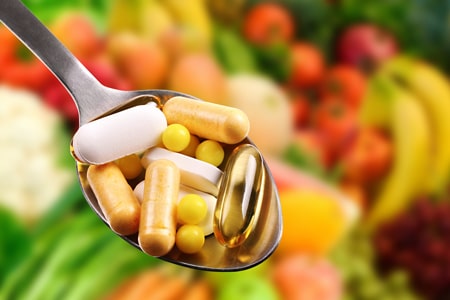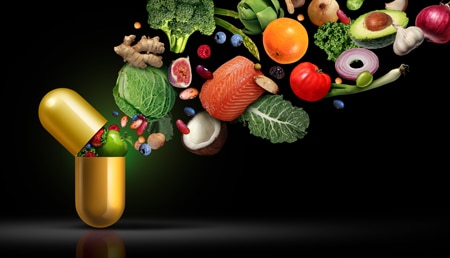
Society treats mental illness differently than physical illnesses. A broken bone or flu is enough to justify late work or calling out sick. But failing mental health is a difficult excuse to use when it comes to employers and teachers. Yet, about 1 in 5 American adults live with a mental illness. That’s over 51 million people as of 2019.
Depression is a mental illness that makes simple things seem impossible. But research behind the best supplements for depression offers hope. Supplements can help those suffering from a substance use disorder get back on track.
About half of people suffering from a substance use disorder also have a mental health disorder. Harmony Ridge uses alternative medicine plus tried and true methods to help patients get through dark periods in their lives.
What Are the Best Supplements for Depression?

There are many vitamins and supplements to help individuals struggling with depression. Though, not every supplement for depression is backed by scientific research. Taking vitamins for depression just because someone on the Internet said it helped them might not help you.
These are the best supplements for depression backed by science:
- Folic acid
- SAMe
- Omega-3 fatty acids
- St. John’s wort
- Vitamin D
- Vitamin B12
- Magnesium
- Saffron
Not every one of these supplements can help people with severe depression. But, research shows that they have the possibility to fight it. Many have fewer side effects than antidepressants and can help boost the immune system overall.
8 Best Supplements for Depression
1. Folic Acid
Folic acid is a form of B vitamin. It’s a synthetic version of folate, which is naturally found in food. Some of these include leafy green vegetables, citruses, and legumes. While folic acid doesn’t produce serotonin (a feel-good chemical), it helps the brain regularly produce it.
Studies have found that it could help boost the effectiveness of antidepressants. A group of men and women with depression participated in a study that used folic acid to boost Prozac. It helped women in the group with their symptoms. However, it failed to help men as much. That said, Harvard notes that men need more folic acid than women which could have affected the study’s results.
3. SAMe
S-adenosyl-L-methionine, or SAMe, helps the brain produce more mood-regulating chemicals. Some of these include norepinephrine, serotonin, and dopamine. Studies show that this supplement can be just as effective as some antidepressants. Additionally, they show that SAMe can make antidepressants more effective.
The studies used placebos against SAMe and then measured the severity of participants’ depression. SAMe outperformed the placebo in a majority of the studies. It’s a powerful supplement that should be taken with caution; taking too much could result in serotonin syndrome.
4. Omega-3 Fatty Acids
There are two types of omega-3 fatty acids found in fish oil: EPA and DHA. Research shows that countries that eat lots of fish have lower rates of depression. Scientists think that fish oil can help brain cells communicate, reduce the risk of inflammation, and inhibits cortisol (a stress hormone).
Studies have shown that taking omega-3 fatty acid supplements with antidepressants can help get through it. While it may not be as effective as something like SAMe, there are virtually no side effects when used correctly. However, taking too much could result in adverse effects.
4. St. John’s Wort
St. John’s Wort is a supplement made from the flowering plant, Hypericum perforatum. Evidence shows that it may help inhibit cortisol production and boost feel-good hormones. Multiple studies have found that it works just as well as antidepressants. However, Harvard writes that there are downsides to these studies.
They write that the studies used participants with different levels of depression. Also, a couple of studies found that it wasn’t more effective than placebos. But, it’s a natural supplement with rare side effects when taken alone.
5. Vitamin B12
People need to consume enough vitamin B12 to stay happy and healthy. A vitamin B12 deficiency can affect a person’s mood significantly. Certain studies have shown that not only does it minimize the risk of depression, but it also can alleviate some of its symptoms. Severely depressed people might benefit from it when it’s used with antidepressants.
6. Vitamin D
Vitamin deficiencies affect the body and mind. Evidence suggests that people with less vitamin D than average are more likely to develop depression. It seems that lower vitamin D levels are associated with more severe levels of depression. In 2020, a study found that an injection of vitamin D alongside treatment helped people get through depression.
People with seasonal affective disorder usually have low levels of vitamin D. The sun is a source of vitamin D. It makes sense that people become more depressed in the winter months when they aren’t getting as much sun.
7. Magnesium
Physical health problems can turn into mental health problems. Many studies show that gut health is important for both physical and mental health. Magnesium supplements may help with good gut health and reduce inflammation overall. One study suggests that it helps the brain produce more serotonin, dopamine, and helps people sleep more easily.
8. Saffron
The science behind saffron is there, but mysterious. Scientists aren’t completely sure why saffron can help with depression. However, some believe that it helps give the brain more serotonin to work with.
Five randomized trials came to the conclusion that saffron could help with symptoms of depression, even in severe cases. More importantly, research suggests that it may work just as well as some antidepressant medications with fewer side effects.
What Is Depression?
According to the National Institute of Mental Health (NIH), depression is a mood disorder. It’s common and serious. In fact, certain types of depression are classified as a serious mental illness (SMI) and qualify as a disability. Around 20% of Americans with an alcohol or substance use disorder suffer from anxiety or a mood disorder, like depression. And 800,000 people commit suicide every year, making it the tenth leading cause of death in the United States.
What Is the History Behind the Best Supplements for Depression?

Modern medicine has come a long way from thousands of years ago. So, how did people manage to overcome mental illnesses in the past? The answer is complementary and alternative medicine. Though, at the time it wasn’t considered alternative medicine.
Chinese medical practitioners thousands of years ago would use herbs, nutritional therapy and mind-body exercises to help people suffering from mental illnesses. Europeans would use materials from plants, animals, and minerals as medicine during the late 18th century. They labeled it homeopathy. More than 3,000 years ago, Indians would use compounds of herbs and minerals in the form of Ayurvedic medicine. Native Americans engaged in similar practices.
It would be silly to dismiss modern medicine as a whole. Yet, supplements and vitamins for depression as a whole helped our distant ancestors overcome dark periods in their lives. Complementary and alternative medicine can improve a person’s mental health naturally.
What’s the Difference Between Supplements for Depression and Vitamins for Depression?
Vitamins for depression? Supplements? What’s the difference? The answer is there is no difference. Dietary supplements are vitamins, minerals, amino acids, herbal compounds, enzymes, and more that can improve health.
So, vitamins are supplements but supplements aren’t always vitamins. There are vitamins and supplements for depression but there’s also a spectrum of them to help people get the right amount of nutrients every day.
Who Could Benefit From the Best Supplements for Depression
Depression can get out of control very quickly without help. Trying out the best supplements for depression is a good start to improve mental health. However, knowing the signs and symptoms of depression comes first.
Signs and Symptoms of Depression
- Feeling sad, anxious, numb, or worthless for more than two weeks
- Increased irritability
- Suicidal thoughts
- Self-harming
- Losing interest in activities that were once enjoyable
- Inability to carry out basic self-care tasks (ie: eating, sleeping, and bathing)
- Physical problems with no explanation
- Issues concentrating
- Self-isolation
- Insomnia
5 Major Types of Depression

- Persistent depressive disorder (dysthymia) – Depression that lasts for at least two years. One or more symptoms must be present during this period of time. Major depression falls into this category.
- Postpartum depression – A deep depression that happens during or after pregnancy.
- Psychotic depression – Depression that is accompanied by paranoia and hallucinations.
- Seasonal affective disorder – It’s characterized by depressive episodes that seem to happen during the winter. Though, it can also happen during the summer.
- Bipolar disorder – While it’s not necessarily depression, the NIH makes a point to classify it this way. They decided to do this because people with bipolar disorder go through periods of severe depression. Usually, it’s followed by periods of mania or hypomania where they feel euphoric or simply content.
How Treatment and the Best Supplements for Depression Work Together
At the end of the day, vitamins and supplements aren’t known to cure depression. Harvard’s medical blog writes that most studies use participants with mild depression. Also, not all vitamins for depression and supplements are FDA-approved.
The best way to get through depression is to use modern programs in combination with alternative medicine. Fixing something often requires multiple tools. Having multiple tools available in the toolbelt of recovery makes it more effective. Treatment for an alcohol or substance use disorder and mental illness is called dual diagnosis treatment.
Therapy at an addiction treatment center can complement supplements and vitamins for depression.
Some popular therapies include:
- Cognitive-behavioral therapy
- Dialectical behavior therapy
- Group therapy
- Individual therapy
- Family therapy
- Art therapy
Harmony Ridge Is Here For You and Your Loved Ones
At Harmony Ridge, we use the power of the best supplements for depression plus formal treatment to help provide long-term sobriety. Battling mental illness and addiction is a lifelong commitment. But the fight can be easier over time with the right tools. Contact us now if you or a loved one want to find peace through sobriety.



